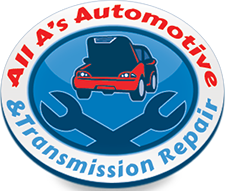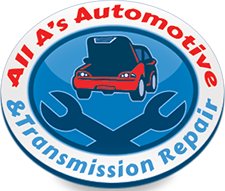Auto Engine Oil Grades: Everything You Need to Know

 Do you know that the W in auto engine oil doesn’t stand for weight? It seems so logical, yet it is entirely incorrect. Who knew? Many of you are probably raising your hand right now, but maybe one or two of you learned something new with this revelation. You don’t need to be an auto engine oil expert, but having a general grasp of SAE oil grades and how often to get an oil change is knowledge all motorists should have. If you need an engine oil refresher or want to gain some vehicle maintenance insights, keep reading for more helpful information.
Do you know that the W in auto engine oil doesn’t stand for weight? It seems so logical, yet it is entirely incorrect. Who knew? Many of you are probably raising your hand right now, but maybe one or two of you learned something new with this revelation. You don’t need to be an auto engine oil expert, but having a general grasp of SAE oil grades and how often to get an oil change is knowledge all motorists should have. If you need an engine oil refresher or want to gain some vehicle maintenance insights, keep reading for more helpful information.
Is an Oil Change Worth It?
Routine maintenance costs can add up over time. However, they are a wise investment when considering the price of an engine rebuild or a new vehicle. Following the factory-recommended oil change service intervals has numerous benefits for your engine. Oil reduces wear and deposit formation in your vehicle’s engine. However, engine oil doesn’t stay effective forever. Engine damage occurs once the oil becomes contaminated with particulates and depleted additives.
SAE Oil Grades
SAE International developed a rating for engine oil grades that all oil manufacturers use. You’ve probably seen the combination of numbers and letters on engine oil containers: 10W or 10W-30. Here’s how to decipher the SAE Oil Grades alpha-numeric code:
- The first number denotes the oil’s viscosity at 0 degrees F. The smaller the number, the better the oil flows in cold temperatures.
- The W stands for winter (not weight).
- The numbers after the W represent a multi-grade oil with viscosity at 100 degrees C. The higher the number, the thicker the oil remains at higher temperatures.
Consult your owner’s manual for your vehicle’s correct SAE oil grade and type. Using a different engine oil may void your factory warranty and cause extensive damage to your vehicle’s engine and other components.
Auto Engine Oil Viscosity
Did you know that viscosity is not constant? Temperature and pressure can change the viscosity of your auto engine oil. Oil can be harder to move through the engine when temperatures drop but easier to move when temperatures rise. Most modern vehicles that drive in fluctuating climates benefit from using multi-grade engine oil.
Auto Engine Oil Weight
The oil grade is not the same as the oil weight. Initially, engine oil came only in a single-weight option (mono-grade), like 0W, 5W, 10W, etc. However, the W doesn’t refer to weight but to the oil’s behavior at cold (winter) temperatures. The performance of mono-grade oils proved inadequate in severe temperatures, so engineers developed multi-weight engine oils in the 1950s to provide better protection over a wider temperature range.
Seasonal Engine Oil
Auto manufacturers may recommend seasonal engine oil for certain conditions. For example, vehicles that function in climates with exceptionally hot and cold seasonal temperatures may benefit from seasonal engine oil. Check your owner’s manual or discuss options with your service technician to verify if seasonal-weight engine oil is appropriate for your vehicle.
Engine Oil Additives
All engine oils contain critical additives to help the base oil decrease friction, dissipate heat, reduce corrosion, and prevent sludge formation. Complex engineering and strict testing of engine oil additives determine which ones perform best for each oil grade.
Auto Engine Oil Institutions
Numerous institutions help streamline the automotive industry’s operational standards, consumer safety, and sustainability.
- American Petroleum Institute: API, established over 100 years ago, is a standards-setting organization for the oil and gas industry. API has developed over 700 standards to enhance global operational safety, environmental protection, and sustainability. Look for the API ‘donut‘ stamp on the back of engine oil products that meet API guidelines.
- International Lubricants Standardization and Approval Committee: ILSAC was formed in 1992 by AAMA (American Automobile Manufacturers Association) and JAMA (Japan Automobile Manufacturers Association). It defines the requirements, scope, licensing, and administration of lubricant specifications. ILSAC and API created the ‘Starburst’ symbol on the front of engine oil products that meet their requirements.
- SAE International: The Society of Automobile Engineers was established in 1905. Its mission is “To advance mobility knowledge and solutions for the benefit of humanity.” It strives to connect and educate mobility professionals to enable safe, clean, and accessible mobility solutions worldwide.
- Petroleum Quality Institute of America: Founded in 2009, PQIA is an independent facility that provides information regarding the quality of automotive lubricants in the marketplace. The institute hopes to serve the consumer by testing and reporting the results of available engine oils. It hopes that wider quality visibility will promote a more comprehensive conformance by lubricant manufacturers.
Oil Change Services in Midland, MI
Our certified technicians at All A’s Automotive will provide a quality oil change with your vehicle’s correct SAE oil grade and filter. If you suspect your auto engine oil is low, we can check for leaks and perform the necessary repairs to get you back on the road quickly.
Schedule an Auto Engine Oil Service
To make an appointment for an oil change, call us at (989)631-4672 or visit us online.
Posted in: Engine Oil
Leave a Comment (0) ↓
